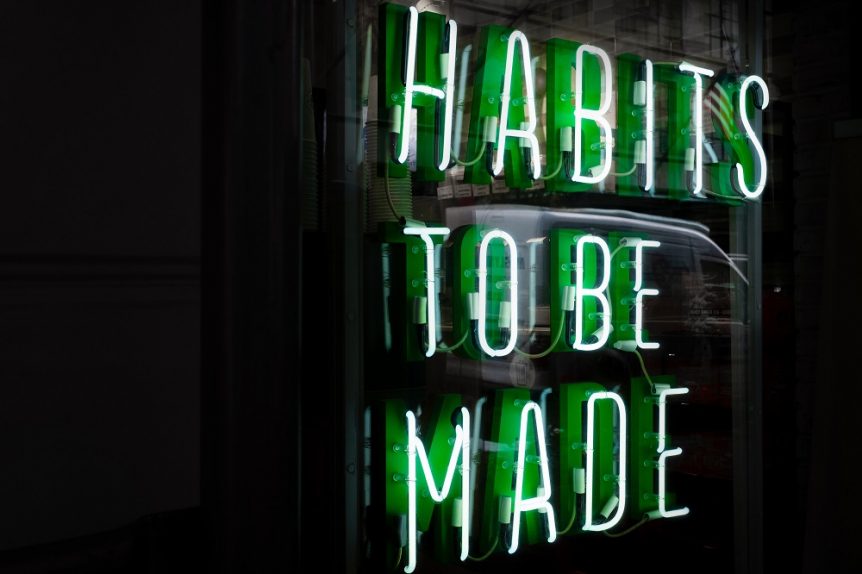When it comes to getting everything done in a day, routines can be a blessing.
We adopt them as soon as we become parents – the sooner that new baby is in a routine, the sooner we feel able to manage.
Then we continue keeping routines because kids respond well to them. Then the kids go to school and are in a routine so that they know what’s happening and what’s expected.
And we adopt routines so that we don’t forget things and that all the boxes are ticked at the end of the day and week.
Routines are good for us in that they free up brain space. They are an automation tool which takes away the need for much thought.
We automatically do the chore or the task at the same time, and our brain energy can be applied to more difficult or meaningful decisions. The washing gets done on the same day of the week, I walk the same aisles at the grocery store and buy the same things so that it doesn’t take long, that kind of thing.
It’s one way we can alleviate the mental load that is so very heavy when you’re juggling all the things and you have so much you need to remember.
[Read more about decision fatigue here ]
The downside to routines
If we’re not careful though, routines can work against us, particularly when they’re accompanied by bad habits.
When we repeat an activity over and over, a neural pathway is developed in our brain, and it’s that pathway that enables us to perform these routines with little thought.
The ‘track’ is well worn along the synapses of our brain so we are able to go about our regular business without thinking about it.
Like the drive to work or school – we follow the same route so we don’t need to think about where we’re going.
Morning and night routines, eating routines, the routine we go through when we arrive at our desk in the morning.
It’s like our brain is on autopilot – which I know, sounds like a great idea when you have so many things to think about!
If that automated action also involves a bad habit though, then our brain is wired to continually repeat that habit without us giving it any conscious thought.
If our routine is that after dinner we move straight to the couch and scroll Facebook in front of the TV, then that’s different to if our routine was to sit on the couch with a book or knitting or some other creative activity.
If our routine is to head straight to the kitchen when we get up in the morning and pour a coffee then this is a different to a routine in which we head straight to the kitchen and make a lemon water.
The habits within our routines can determine whether our routine is actually helpful or harmful.
Using brain matter to make better habits
Habits are rituals or behaviours that we repeat usually without thinking.
They might be:
- those we don’t notice;
- good ones that we sometimes have to work hard to maintain;
- and those that are bad for us – like smoking, or scrolling Facebook.
Research from Duke University tells us that around 40 per cent of what we do every day is based on habit and not conscious decision.
Which means that almost half of what you do every day is likely to be a habit, not a choice.
So potentially you’re going about your day and life unconsciously, harming your health and happiness in the process. Our lives – our wishes, dreams and good intentions – can become lost to us within routines and bad habits that we’re not aware of.
This is how balance can seem elusive.
Being aware of your habits (and the routines they hide in) is the first step to achieving better balance.
When you identify your bad habits, and also identify new habits that you would prefer to do, you can make a conscious effort to change things through the process in which you stop practicing the old habit and start practicing the new one,.
When you start practicing a new habit. your brain will then start paying attention to what you’re doing (the gift of neuroplasticity). You will be firing up new messages in the brain, making new synapse connections which over time, will form a new ‘track’.
That’s why it takes a while to form a new habit – you need to build a new pathway in the brain and that takes repetition.
Here are some tips to starting a new habit:
- Think about your current routines and habits – identify bad habits and consider new ones you would like to have. Choose one new habit to start work on.
- Make the habit you choose something you can start today. Don’t choose one you don’t have the time or resources for just at the moment. If time is an issue, choose something that can be done in 10 minutes a day.
- Find someone to be your accountability partner. (We have balance challenges in my Facebook group – you’re welcome to join).
- Declare your intention – let people know (again, the group is good for this).
- Write it down (research shows that we are more likely to succeed if we write it down).
I also use the concept of ‘don’t break the chain’ – I have an app on my phone in which I mark off each day to show how many days in a row I’ve performed the goal. It becomes quite motivational because you don’t want to miss a day.
Your new habit might be yoga, meditation, walking, reading, writing every morning, getting up earlier, going to bed earlier, drinking 8 glasses of water a day, eating greens, studying a course, or doing something new in your business – it can be anything that you feel you need or want.
Lastly, don’t put time pressure on yourself and think you need to allocate hours to any activity. It’s not how long you do these activities that matters, but how often. A daily practice of 10 minutes is better than an every-now-and-then hour.
Listen on the podcast:
Photo by Drew Beamer on Unsplash






![Being bad... IMG_1592[1]](https://www.rachaeljansen.com.au/wp-content/uploads/2014/02/IMG_15921-1024x1024.jpg)